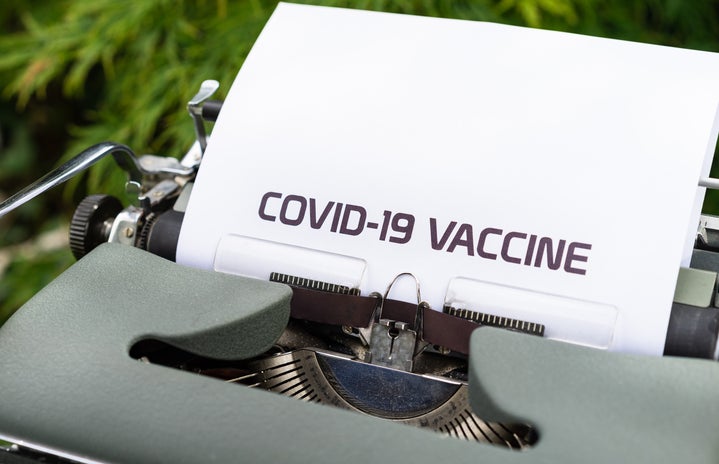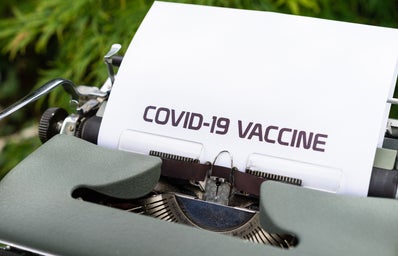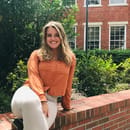When the vaccine was first announced by Pfizer, I was excited to finally see an end in sight to all the death and destruction that COVID-19 has caused in the last year. After all, a vaccine would mean being able to see older family members and going to the movies again. While the vaccine has been administered to over 40 million people, inequities are starting to show through the cracks, specifically in Black and Hispanic communities.
In all of the states that are reporting demographic data, Black and Hispanic Americans have received a smaller share of vaccinations as compared to their rates of infection according to the Kaiser Family Foundation. Also, from another analysis conducted by CNN, vaccine coverage is twice as high in white people than it is in Black and Hispanic people. More than half of Black, Hispanic and Latino Americans remain hesitant to get the vaccine, despite the devastation that the coronavirus has left in its wake.
At first, I wondered why these communities were so hesitant. After all, it has been shown that the coronavirus disproportionately affects racial and ethnic minorities. If these groups are more vulnerable, wouldn’t they want to be protected?
However, upon reflection, I realized that my thinking was a prime example of white privilege. Not only did I assume that Black, Hispanic and Latino communities had the same experiences with health care as I had, I also mistakenly assumed that this tumultuous period in race relations would not affect vaccine hesitancy. In both assumptions, I couldn’t have been more wrong.
Black, Hispanic, and Latino communities haven’t had the same experiences with health care as I, or other white people, have had. The first instance to come to mind of blatantly inhumane treatment of Black people by the medical community was the Tuskegee experiments in which Black men were told they were receiving treatment for Syphilis when instead the ‘scientists’ were using them to see the long-term effects of the disease.
The subjects suffered needlessly for 40 years–despite the study’s initial six-month time frame and the discovery of penicillin as an effective treatment a little over 10 years after the first year of the study. The study was only stopped in 1972 (less than 50 years ago) after being exposed by the Associated Press.
Hispanic and Latino people have unfortunately also been innocent victims of the medical community in the United States. Research on sexually transmitted infections conducted in the 1940s by the U.S. Public Health Service purposely and deceitfully exposed prisoners, soldiers and psychiatric patients in Guatemala to STIs by infecting sex workers they were in contact with. The worst part? 60 years went by before the study’s unethical and monstrous methods were revealed in 2010.
With a history of mistreatment, deceit and being used by the medical community, it is no wonder Black, Hispanic and Latino communities are wary of the COVID-19 vaccine. Especially when the vaccine comes from a presidency that has only had blatant disrespect for these communities in recent times, exposing the deep-rooted racism in this country.
Another reason for vaccine hesitancy, as is the case with many Americans, these communities are worried about how quickly the vaccine was developed and the unforeseen long-term effects. For some Hispanic and Latino communities, they are afraid to share their personal information with the federal government if they are undocumented and are unsure how the insurance process works.
Dr. Eugenia South, assistant professor of emergency medicine at the University of Pennsylvania, recently wrote a piece for NBC News detailing how she changed her mind about the COVID-19 vaccine as a Black doctor. Within it, she details how she weighed the safety concerns and mistrust of the medical community she was a part of against the science behind the vaccine. She learned the mechanism and data behind the technology that created the vaccine, read the experiences of Black physicians who participated in vaccine trials as well as considered her daily exposure to the coronavirus (to read the full article, click here).
“In addition to being a physician, I am a scientist…while the historical examples of experimentation on Black bodies…are too numerous to count, and concerns about racism and bias in research persist, I still trust rigorous science,” South declared in the article.
So how can the medical community work to regain the trust of these communities? Ultimately, it will be a long and hard road to repair the centuries of wrongdoings; however, it may be possible by improving representation within the medical community itself.
For instance, the National Medical Association (NMA), a professional society of Black and African American doctors, formed their own committee to vet the COVID-19 vaccine data and to endorse the emergency authorizations for the Pfizer and Moderna vaccines. While this helped, the organization took it a step further by organizing meetings in their communities where people can ask questions about the vaccine to pharmaceutical companies using the NMA as the point of contact. This non-judgmental and clear conversation allows community members to get their questions answered by someone they trust and that has been their doctor for years.
Another example is Dr. Jorge Moreno, an internist and assistant professor at the Yale School of Medicine, who created a YouTube video describing his personal experiences with the COVID-19 vaccine in Spanish. In terms of understandable vaccine information, it is hard for Hispanic and Latino community members to find in Spanish or from a provider of the same background that could relate to their experiences.
One organization that works to provide information about the coronavirus in Spanish and easily accessible for Hispanic or Latino communities is contraCOVID. A group of Harvard Medical School students and professionals started the group to provide reliable and accessible information about the pandemic and vaccine to those that may not readily have access available. A chapter has been created by UF students as well (contraCOVID Gainesville) and works to connect underserved groups to ‘updated information about resources in Gainesville.’
While the COVID-19 vaccine may be available, it’ll take time for wounds to heal and for minority communities to trust that the vaccine is safe. However, it can be done with patience, openness and reliable leaders within communities.
“Let’s normalize hesitancy to take a new vaccine,” South said in her article to NBC News. “Instead of judgment, we need to empower trusted messengers to answer community questions and dispel myths.”


